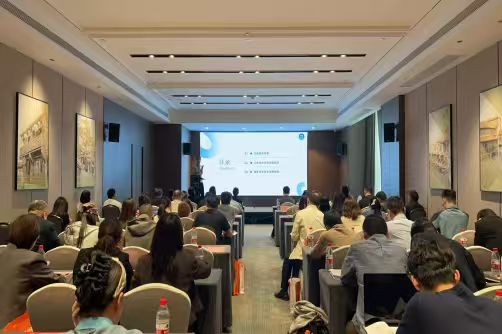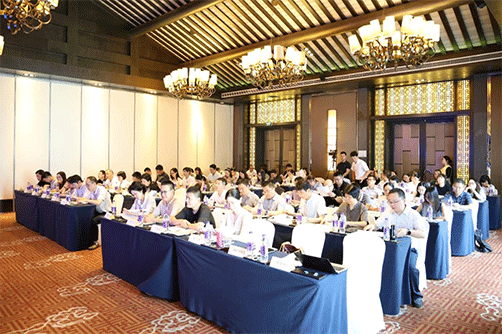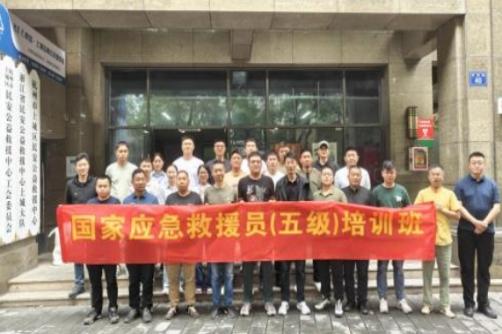January 1, 2023 marks the 25th anniversary of the establishment of diplomatic relations between China and South Africa. Over the past 25 years, the friendly relations between China and South Africa have deepened continuously, with closer solidarity and cooperation, fruitful results in economic and trade cooperation, and splendid achievements in cultural exchanges. The comprehensive strategic partnership between China and South Africa has continuously moved towards higher quality, broader fields, and deeper levels, developing into one of the most important and dynamic bilateral relations between China and Africa or even among developing countries.
In the 1990s, after South Africa abolished the apartheid system, China and South Africa formally established diplomatic relations. Over the past 25 years since the establishment of diplomatic relations, the two countries have understood and supported each other on issues involving each other's core interests and major concerns. The bilateral relations have withstood the test of time and the changing international situation, achieving a major leap from partnership to strategic partnership and then to comprehensive strategic partnership. The leaders of the two countries have maintained close exchanges and interactions, providing top-level design and strategic guidance for the development of bilateral relations.
China and South Africa are both important developing countries in the world, and the friendship between the two countries has long transcended the scope of bilateral relations. The two countries share similar or identical views on development, security, and international order, and have broad consensus on major international and regional issues. In international organizations and multilateral mechanisms such as the United Nations, the G20, BRICS, and the Forum on China-Africa Cooperation, China and South Africa are among the closest partners, always adhering to true multilateralism, working together in solidarity and closely coordinating, firmly safeguarding the legitimate rights and interests and common interests of developing countries, and coordinating all parties to jointly promote inclusive growth of the world economy and a more just and reasonable international order.
As the political foundation of China-South Africa cooperation continues to consolidate, the economic and trade exchanges between the two countries have become increasingly close, becoming a highlight of practical cooperation between China and South Africa. China has been South Africa's largest trading partner for 13 consecutive years, and the bilateral trade volume between China and South Africa accounts for one-fifth of the total trade volume between China and Africa. The latest data from the General Administration of Customs shows that from January to November 2022, the total bilateral trade volume between China and South Africa reached 52.81 billion U.S. dollars, of which China's imports from South Africa accounted for nearly 60% of the total trade volume between the two countries, benefiting South Africa's pillar industries such as agriculture, animal husbandry, and mining. At the fifth China International Import Expo held in November 2022, high-quality South African products such as rooibos tea, red wine, and aloe vera gel attracted much attention. South African exhibitors achieved intended transactions of nearly 100 million U.S. dollars, a year-on-year increase of 254%, which vividly illustrated the economic and trade cooperation between China and South Africa.
Driven by the booming trade, more and more Chinese companies have invested and started businesses in South Africa, making "Made in China" products closer to the local market. Data provided by the Chinese Embassy in South Africa shows that by the end of 2021, Chinese companies had invested more than 25 billion U.S. dollars in South Africa, creating more than 400,000 jobs locally. Chinese companies have brought much-needed technology and capital to South Africa's manufacturing industry. Chinese-branded cars and household appliances can be produced in South Africa, and affordable products have entered ordinary African households. The capacity cooperation between the two countries has achieved complementary advantages and mutual benefit.
Close people-to-people exchanges have also provided rich nourishment for the friendship between China and South Africa. In recent years, China and South Africa have established the first high-level people-to-people exchange mechanism between China and Africa, covering many fields such as education, culture, health, youth, women, and think tanks. People-to-people exchanges have entered a stage of comprehensive, multi-level, and institutionalized development. South Africa has the largest number of Confucius Institutes and Confucius Classrooms in Africa, with 6 Confucius Institutes and 3 Confucius Classrooms established. The "Chinese language fever" continues to heat up in South Africa. South Africa is also the country in sub-Saharan Africa that attracts the most Chinese tourists and has the most sister cities with China.
When hearts and minds are united, no plan will fail. Looking back at the 25-year history of exchanges, the reason why China-South Africa relations have been able to move forward steadily is that the two countries have always maintained a high level of political mutual trust, adhered to mutual respect and equality, and brought tangible benefits to the people of both countries through practical cooperation. With the joint efforts of the two countries, China-South Africa relations have become a model for China-Africa relations, South-South cooperation, and cooperation among emerging market countries, with important strategic significance and global influence.
The new year is of great significance to both China and South Africa. 2023 is the first year to fully implement the spirit of the 20th National Congress of the Communist Party of China. China has embarked on a new journey to build a modern socialist country in all respects. China's new development will bring more new opportunities to countries around the world, including South Africa. South Africa has taken over from China as the rotating chair of BRICS and will use a series of meetings to build consensus among emerging markets and developing countries to jointly address global challenges. On the occasion of the 25th anniversary of the establishment of diplomatic relations, China-South Africa relations will reach a new climax, and the mutually beneficial cooperation between China and South Africa will surely produce a "one plus one greater than two" positive effect, contribute to building a China-Africa community with a shared future in the new era, and bring more benefits to the cause of human development and progress.




